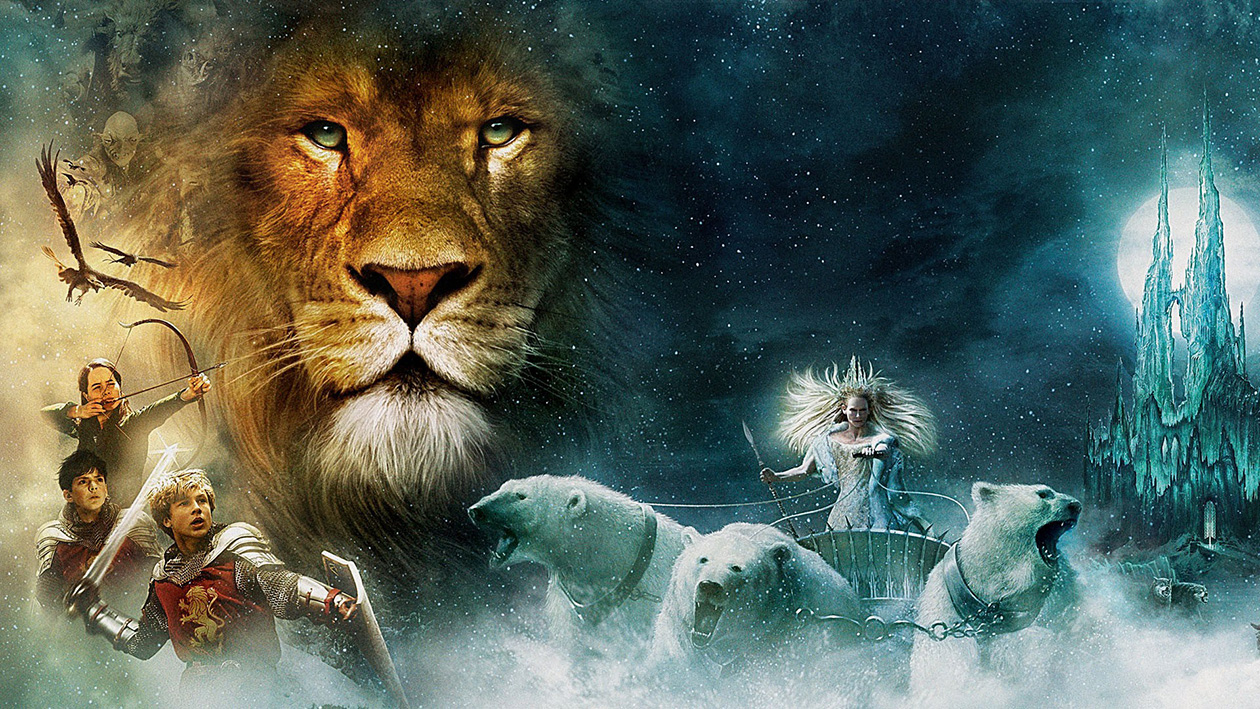Troy Hunneyball explains why Netflix’s choice to adapt C.S. Lewis’s work might actually work.
Following Amazon’s plans to reboot The Lord of the Rings in a new prequel series, Netflix have announced their own adaption of a classic fantasy series, The Chronicles of Narnia. Although C.S Lewis’s children’s books are once again following in the shadow of J.R.R Tolkien’s fantasy epics, unlike in 2005, when Disney tried to cash in on the success of the Lord of the Rings trilogy with The Lion, the Witch and the Wardrobe, this time Narnia has the opportunity to best Middle Earth. Because there is one big difference between the trilogy of fantasy films that the streaming giants are remaking: The Chronicles of Narnia films were never good.
If you haven’t totally forgotten that there was ever a The Lion, the Witch and the Wardrobe film (and who could blame you), then you probably only remember it vaguely as a generic noughties kid’s film. That’s really the nicest thing you could say about it. And there’s a good chance you never even knew that there were two sequels made for it. But this is exactly why it’s the perfect candidate for a remake; it’s because the original never lived up to the potential of the source material. Meanwhile, Amazon’s series comes only fifteen years after The Return of the King won every Oscar it was nominated for and matched the record for the most Oscar wins ever. Peter Jackson’s The Lord of the Rings films are iconic, and near perfect. It’s hard to imagine how they could be improved, and as such, Amazon’s series seems doomed to live in its shadow, and will no doubt pale in comparison to the original trilogy.
“… this is exactly why it’s the perfect candidate for a remake; it’s because the original never lived up to the potential of the source material”
And Amazon knows it, hence their choice to make it a prequel series. Their new adaption is forced to live in the cracks left by the old, unwilling to provoke comparisons to the previous films whilst still trying to profit from its name. Conversely, Netflix’s Narnia adaption actually has more freedom this time around, because they are the first production company to own the rights to all seven of the books in the series. The Disney/Walden Media collaboration only owned the rights to four, and only made movies from three. This means the Netflix version can distance itself from the previous movies by exploring the books that audiences haven’t yet seen. And if they are successful, we might finally get to see the story of Narnia told to completion on screen.
Although Netflix’s Narnia adaption could end up being as lacklustre as previous attempts, at least it has the potential to be great, something that is harder to say about Amazon’s series. The difference between them is clear: bad movies with wasted potential make good remakes, classic movies that cannot be improved make bad remakes. This formula has been proved multiple time, by remakes like Ghostbusters, The Ghost in the Shell, and The Mummy, which were box office bombs, in comparison to the huge success of 2017’s It remake and HBO’s Westworld series, both of which were massive improvements on the originals. Hopefully, Netflix’s Narnia adaption will be successful enough to help tip the scales of Hollywood away from beating a dead horse, towards utilising wasted potential.
Troy Hunneyball
Image: AMC

